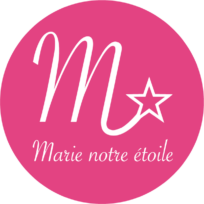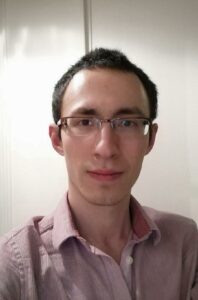Marie notre Étoile met Julien Vibert, oncology physician-researcher at the Gustave Roussy Institute.
Marie notre Étoile: What are you currently working on?
Julien Vibert: At the moment, I am devoting a large part of my time to medical residency and the rest to research, which has taken up a lot of my evenings and weekends over the past two years. Of course, I am continuing the projects I started at Curie (notably neoantigens for immunotherapy targets in Ewing's and other pediatric sarcomas). Secondly, I have a number of ongoing projects in artificial intelligence and, under Sarah Watson's supervision, have developed a tool for cancers of unknown primary (cancers for which the original organ cannot be found), which account for 3 to 4% of all cancers. This tool has recently received a great deal of media coverage and is now being used in everyday practice as part of the France Médecine Génomique (France Genomic Medicine) plan. It was a great satisfaction for me to see for the first time the concrete application of math and artificial intelligence to cure patients. This is the subject of my medical thesis with Sarah Watson. Then, concerning my more concrete research work at Gustave Roussy, I work a lot in Phase 1 clinical research on new drugs or new combinations, using in particular "single cell" techniques: with these new techniques, we can sequence transcriptomes or genomes in single cells, instead of an average over several million cells as was previously the case. They enable us to better understand the effects of drugs on patients, why they become resistant... We are interested, for example, in particular subtypes of sarcoma, which we will try to dissect in single cells to better understand why these cells become cancerous, how they interact with immune cells to see if immunotherapy can work or not... The project I am about to embark on, which is the subject of the scholarship I have been awarded for the next two years, is quite ambitious: it involves finding the cell of origin of sarcomas. This is a very difficult undertaking, given the sheer number of sarcomas and the rarity of each subtype. The aim is to classify all these sarcomas within a sort of soft-tissue "family tree" (bone, muscle, fat, etc.), in much the same way as has been done in another field for leukemia and hematological cancers. This would enable us to better understand, diagnose and, above all, offer better leads for potential treatments of these rare diseases for which there are too few solutions. The advantage at Gustave Roussy is that we have highly advanced molecular techniques to do this, including on the scale of the single cell, and once we have new targets, we will be able to test them directly on patients in Phase 1 as soon as the drug has been developed with well-established protocols, and then apply them to all patients suffering from these diseases. All these projects together require a very intense pace of work, and involve close collaboration with other people, of course here at Gustave Roussy, but also at Curie, Léon Bérard, Bordeaux... the French Sarcoma Group is highly collaborative, a great strength that is the envy of all countries.
I am working on twelve projects at the moment, which is probably a bit too many! This leaves me very little time for my personal life, but that is the price I have to pay for this activity that I am so passionate about.
Marie notre Étoile: When did the "single cell" project start?
Julien Vibert: There are several single cell projects. These techniques began to be used in research around 2016-2017, and Curie was a great pioneer in this field. I was lucky enough to start at the beginning of the development of these techniques in 2018 as part of my science thesis. I have many projects that started that year which, because of their length and complexity, are still being written. They represent thousands of hours of work. We are working on computer clusters with enormous resources: you have to imagine that a single-cell sample is a matrix of 50,000 genes times 10,000 cells. Hence the complexity and richness of this data.
Marie notre Étoile: Which partners are you working with at the industrial level?
Julien Vibert: On the industrial side, some companies have succeeded in gaining a foothold in single-cell techniques, notably 10x. As far as software is concerned, we tend to work with open source: it is a little difficult to navigate as ten or so new tools are released every week, but this also means that there is a worldwide community developing tools for this type of analysis. At academic level, I benefit from the bioinformatics skills of my American thesis co-director Joshua Waterfall, Team Leader at Curie, who works in pediatric oncology. I also collaborate with a mathematician from Jussieu (who unfortunately had suffered from sarcoma) on the application of mathematical techniques to sarcomas. But there are also associations that help us: for example, "Dessine-moi la High-Tech", which runs virtual reality experiments for children, has lent us the skills of its "data scientists" on certain programs. So there are industrial partnerships, as well as academic and associative ones. It is very important to surround yourself with the right people to take advantage of the diversity and complementarity of their skills, and to succeed in dialoguing together.
Marie notre Étoile: Can you tell us more about the French Sarcoma Group?
Julien Vibert: For the past twenty years, the French Sarcoma Group has been bringing together French sarcoma reference centers to organize congresses and, above all, to share a common database of all our sarcoma patients and their clinical characteristics. As these are rare pathologies, this source of information is particularly valuable, as it makes it easier to carry out studies. The group is coordinated by Jean-Yves Blay in Lyon (Léon Bérard) and Axel le Cesne at Gustave Roussy. It is a very powerful collaborative group: we are able to recruit our patients in the same studies and therapeutic trials, and therefore have sufficient sample sizes. Currently, this is not the case in other countries.
Marie notre Étoile: Is this database shared with other countries?
Julien Vibert: Not at present. We do, of course, have international projects, but such sharing would not be easy: as other countries are not federated on a national level, it would mean working with isolated centers, with a consequent risk of dispersion and very limited benefits in terms of research.
(End and thanks)


